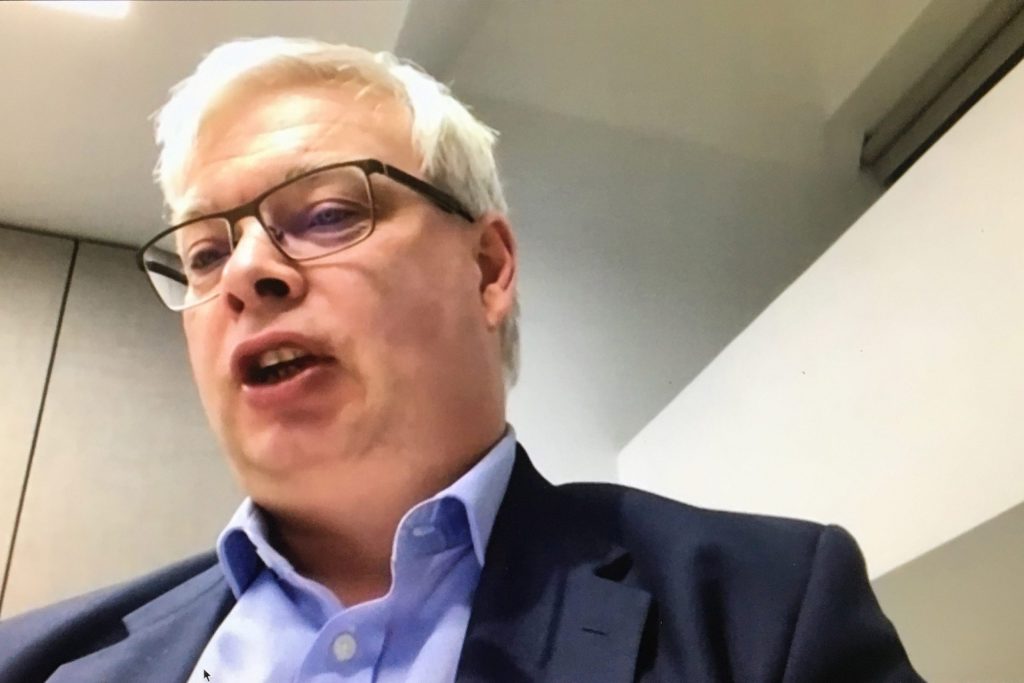In collaboration with European Intellectual Property firm Kilburn & Strode, the BC Law Program on Innovation and Entrepreneurship (PIE), on November 30, co-hosted a virtual panel discussion on the complexity of encouraging innovation in the pharmaceutical space.
As PIE faculty director Professor David Olson said in his opening remarks, the grant of time-limited monopoly rights to drug companies is sometimes derided as unfairly profiting from patients. Yet, such exclusive rights exist for a reason—which is to encourage innovation—an outcome that lawmakers think would not happen but for the exclusivities.
At issue, Olson said, is finding the balance between granting exclusive drug rights to encourage innovation and allowing competition to lower prices for drugs. “To understand the balance,” he argued, “we must understand how these exclusivities work and are used. And, of course, using these exclusivities effectively is critically important for pharmaceutical market participants.”
The audience for the panel learned that, in addition to patents, the EU allows drug makers to apply for Supplementary Protection Certificates (SPCs) and market exclusivities. SPCs are rights that, in effect, provide a form of patent term extension limited to an approved drug product. Market exclusivity rights are independent of the exclusive rights given by patents. They may run concurrently with the patents, in which case they give little if any additional protection from competition. But in other cases, when the exclusivities are granted late in the patent term, they can give some years of additional exclusive rights before competitors can enter the market.
The additional protection can make the difference between a drug being an overall profit or loss, Olson noted. In cases in which a drug is not approved for sale until quite late in the patent term, there may be only a few years of patent protection left before generics can enter the market. In cases of drugs that can cost billions of dollars and many years to develop, a short term of patent protection once the drug enters the market may not be enough to pay for the research and development costs of the drug.
To address this, in addition to the extra protection provided by SPCs, the European Union has created exclusivities that are independent of the patent term and that begin to run once the drug is approved for sale (“market authorization”). These include data exclusivity, market exclusivity, orphan drugs exclusivity, and pediatric research exclusivity.
Panelists discussed details of each of the available exclusivities.
Nick Bassil of Kilburn & Strode explained SPCs. Nicole Jadeja, partner at Pinsent Masons, addressed market and data exclusivities. James Horgan, head of European Patents for Merck & Co.’s subsidiary MSD, offered examples of how use of these exclusivities have played out in the EU for drug companies trying to fend off generic competition.
Jennifer Harris, partner at Kilburn & Strode, and chair of the panel, then moderated a Q&A, during which the panelists discussed strategies and challenges to using these exclusivities, as well as pressure from some in the EU to cut back on these exclusivities because of worries of high drug prices.
The consensus of the panel seemed to be that exclusivities will continue to be of high importance to drug makers, but that adjustments to the regimes could be coming. That said, the speakers agreed that helping companies avail themselves of the EU’s exclusivity rights remains a tricky business in which having good lawyers is of paramount importance.
Photo above: James Horgan, head of European Patents for Merck & Co.’s subsidiary MSD, discussed how exclusivities work for drug companies in the EU.


